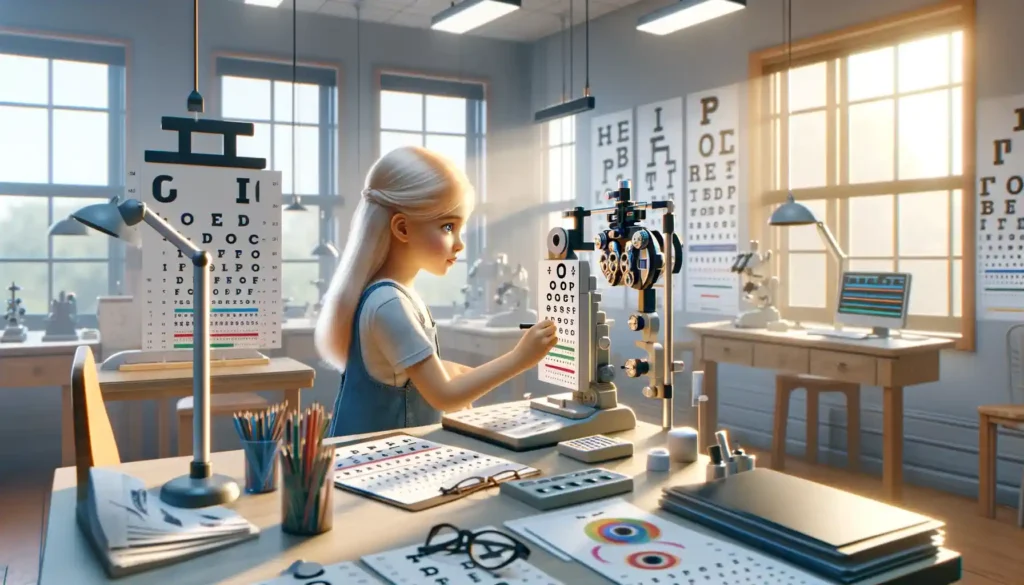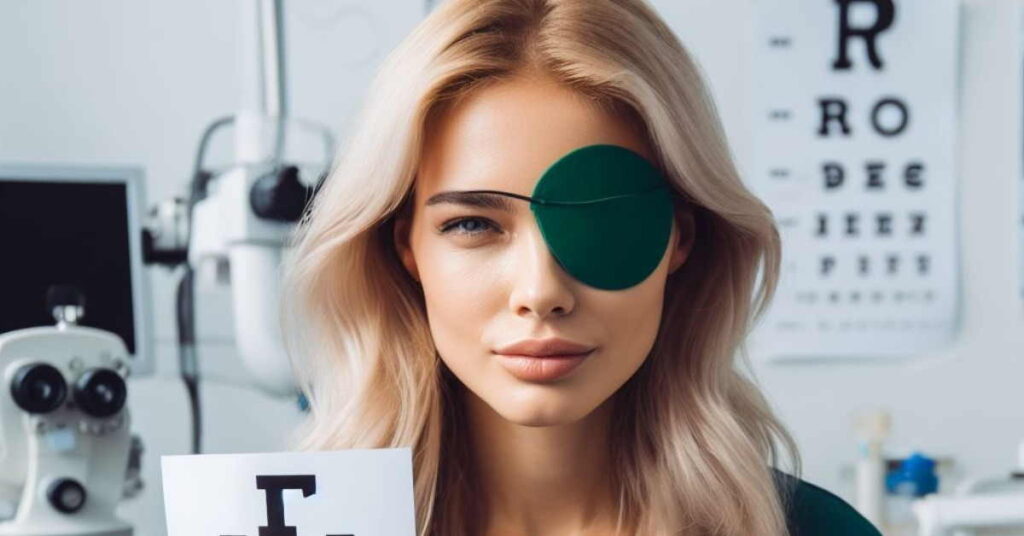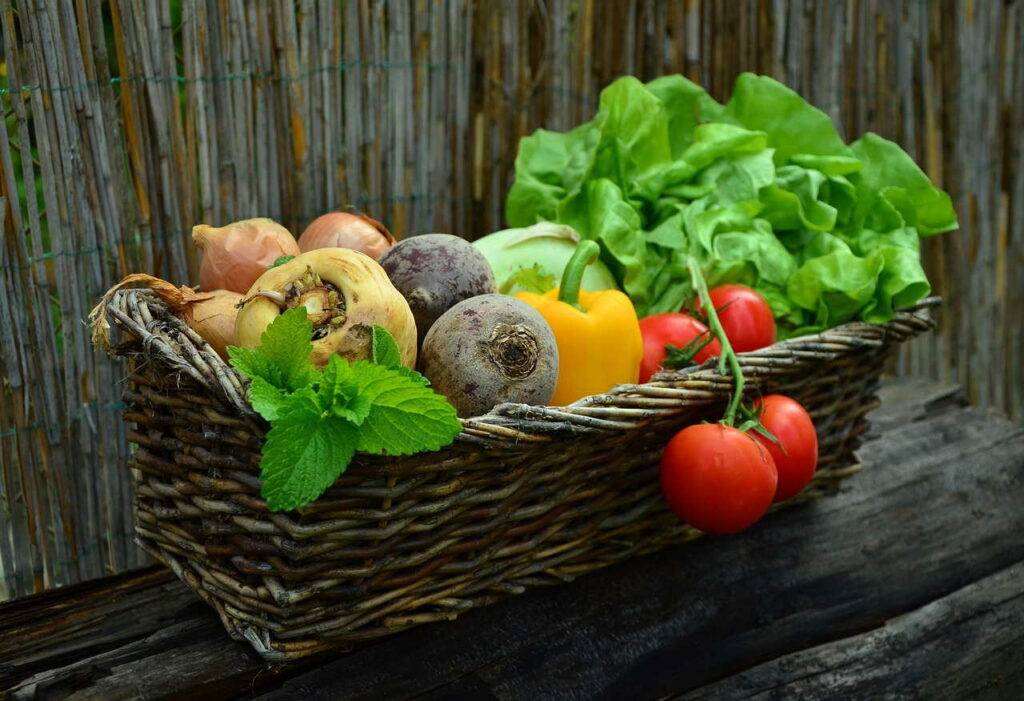How to heal blurry vision with the best vegetables and foods? Hello everybody and welcome to the Natural Eyesight recovery blog. My name is Sviatoslav and today we will talk about foods to cure blurry vision and help with eye diseases. Nutrients and Vitamins for the Eyes.

There are quite a few of them, the whole problem is that people usually do not know about it, and doctors are more rely on medications.
The Importance of Nutrition for Eye Health
Before we dive into specific foods, it’s essential to understand why nutrition plays a crucial role in maintaining and enhancing our vision. The eyes, like any other part of the body, require specific nutrients to function optimally. Key nutrients for eye health include:

Vitamin A: Essential for the formation of the light-sensitive cells in the retina.
Lutein and Zeaxanthin: Antioxidants good for eye protection.
Omega-3 Fatty Acids: These fats contribute to the health of the retina and may help prevent age-related vision loss.
Vitamin C: An antioxidant that may lower the risk of developing cataracts and age-related macular degeneration (AMD).
Vitamin E: Another antioxidant that helps protect cells in the eyes from damage caused by free radicals.
Zinc: is a good mineral to maintain the health of retina cells.
Now, let’s explore the foods that are rich in these eye-loving nutrients.

Red onions for better eye health
Red onions help prevent blurred vision because they contain quercetin – an antioxidant that can prevent the development of cataracts.
Carrots Dining for Vision
Carrots contain beta-carotene, which is one of the best nutrients and vitamins for the eyes, after ingestion, is converted into vitamin A. Vitamin A not only helps to maintain eye health and normalizes twilight vision but also contributes to the formation of a strong immune system and gives a healthier kind of skin.
Potatoes: Eat Your Way to Sharp Vision
Potatoes, pumpkin, and spinach also contain quite a lot of beta-carotene which makes it great food for the eyes
Eating several servings of these vegetables daily is excellent. Carrots are best eaten raw, as some vitamins and trace elements are lost. It is good in salads seasoned with vegetable oil or sour cream since carotene (like vitamin A) is absorbed with the help of fats.
Bell peppers, Brussels sprouts, and broccoli: The Vision Diet
Bell peppers, Brussels sprouts, and broccoli are high in vitamin C, which is beneficial for both vision and the immune system. Vitamin C, as mentioned above, slows down the development of age-related macular degeneration, cataracts, and glaucoma. It is recommended to eat half a cup of sweet peppers daily, Brussels sprouts, and a cup of broccoli.
How to heal blurry vision with the best eyesight improvement course Eyesight Academy Holistically

Are you tired of struggling with blurry vision? Do you look for sharper focus and clearer sight? Enroll in the best eyesight improvement course eyesight academy to see better. The best eye stretching and training eye exercises will help you to boost your eye health naturally.
Turkey: Plate to Clarity
Turkey is rich in protein and zinc. When combined with other foods rich in antioxidants, zinc reduces the risk of developing macular degeneration by almost 25%. Moreover, it helps protect the remaining vision for those people who have already been diagnosed with age-related macular dystrophy.
Spinach: Nutrition for Vision
Spinach is rich in beta-carotene, vitamin C, antioxidants, and lutein, all of which are good for the eyes. Lutein can prevent the development of macular degeneration and cataracts. For faster absorption, you can combine spinach with olive or other vegetable oil. Lutein acts as a sunscreen, reducing the intensity of solar radiation in the blue range. Another good source of lutein is cabbage.
Fish: Foods that Support Healing of Blurry Vision
Fish contains a large amount of omega-3 fatty acids, which not only help lower cholesterol levels but also help protect the eyes from macular dystrophy and dry eye syndrome due to the production of protective pigments. The best sources of omega-3s are salmon, tuna, and sardines. You can also replace fish with fish oil or supplements containing omega-3 acids. People with myopia should consume hawthorn herbal tea, which is rich in carotene, but also ascorbic acid.
Pumpkin
Pumpkin is also rich in carotene and therefore should be included in the diet of people with impaired vision.
Cantaloupe
Cantaloupe (cantaloupe melon) is an important source of vitamin A (in 100 grams contains 112% of the Recommended Dietary Allowance consumption of this vitamin). Its content in cantaloupes is one of the highest among all members of the pumpkin family. Cantaloupes are also rich in antioxidant flavonoids, including beta-carotene, zeaxanthin, and cryptoxanthin nutrients and vitamins for the eyes. These antioxidants help protect cells and other structures of the body from free oxygen radicals, and prevent cancer. Zeaxanthin is the retina that acts as an antioxidant and protects against UV rays. so, he helps prevent age-related macular degeneration. Other melons are high in beta-carotene, which prevents the appearance of “night blindness”.
Eggs: Clearing the Blur
Eggs – improve the metabolism in the eye system, preventing the occurrence of cataracts and other diseases of the cornea.
Citrus fruits
Citrus fruits – significantly reduce the risk of eye diseases, normalizing blood circulation in the visual system.
Grapes
Grapes – provide an optimal level of capillary permeability in the retina.
Kiwi
Kiwi – improves blood circulation and strengthens the walls of the eye vessels.
Olive oil
Olive oil – is rich in omega-3s and nutrients that improve all processes of vital activity in the body.
Dark chocolate
Dark chocolate – contains many bioflavonoids that have a positive effect on vision and strengthen the cornea.
Rosehip: Feeding Your Eyesight
Rosehip – improves the elasticity and strength of the eye capillaries. 2 tablespoons of fruit pour 1 glass of hot water, and boil for 5 minutes. Drink half a glass in the morning and in the evening. Or pour 1 teaspoon of rosehip leaves with 2 glasses of water, and stand for low heat for 2-3 minutes. Cool down. Drink with honey.
Green tea: Nourishing Your Eyes for Clearer Vision
Green tea. It will help to improve vision, and it is also used as a therapeutic solution for lotions, and rinsing warm compresses. Green tea tones up blood vessels cleans the eyes of toxins, and relieves swelling, and redness of the mucous membrane. For lotions, 1 spoonful of tea leaves with 1 glass of boiling water, insist until the tea cools down. Warm napkins are impregnated with a solution and applied to the lowered and upper eyelids. After a busy day or a long stay at the computer, such treatment refreshes eyes and improves vision.
Aloe vera
Aloe Vera restores the ability to see well. If Aloe juice is taken orally 1 teaspoon after meals 3 times a day, you can do compresses.
Parsley
Parsley. Chop the parsley roots in mashed potatoes, and add a little honey and lemon juice (by volume about as much as parsley gruel). Take 1 teaspoon of funds an hour before meals.
Mint
Mint Drinking mint tea is very beneficial for the eyes and health.
Lemongrass
Lemongrass helps improve visual acuity. You can take lemongrass tincture at 20
drops in the morning on a glass of water. Lemongrass is contraindicated for people with hypertension and nervous excitement.
Today we discussed foods and drinks that improve vision and help with eye diseases. I hope it will help you. Subscribe to my channel and will see you again.

